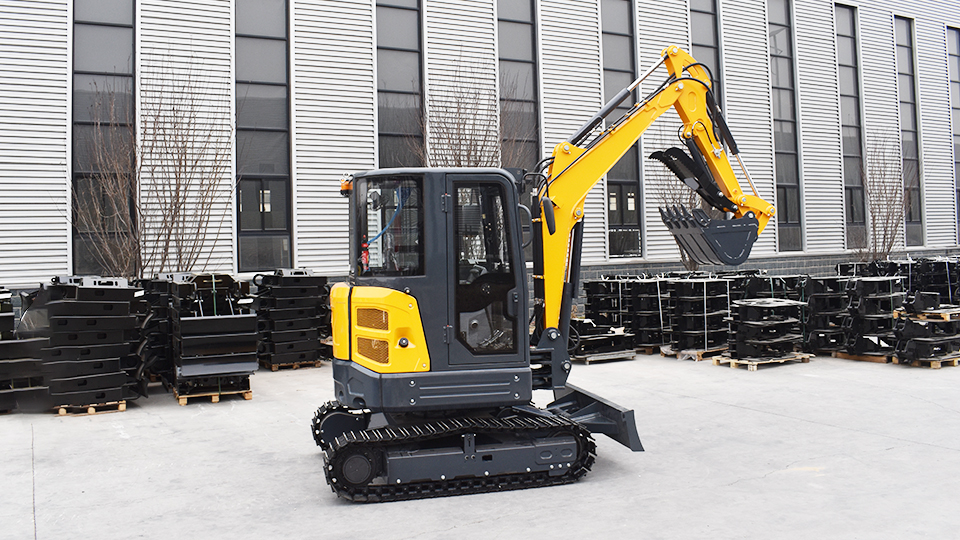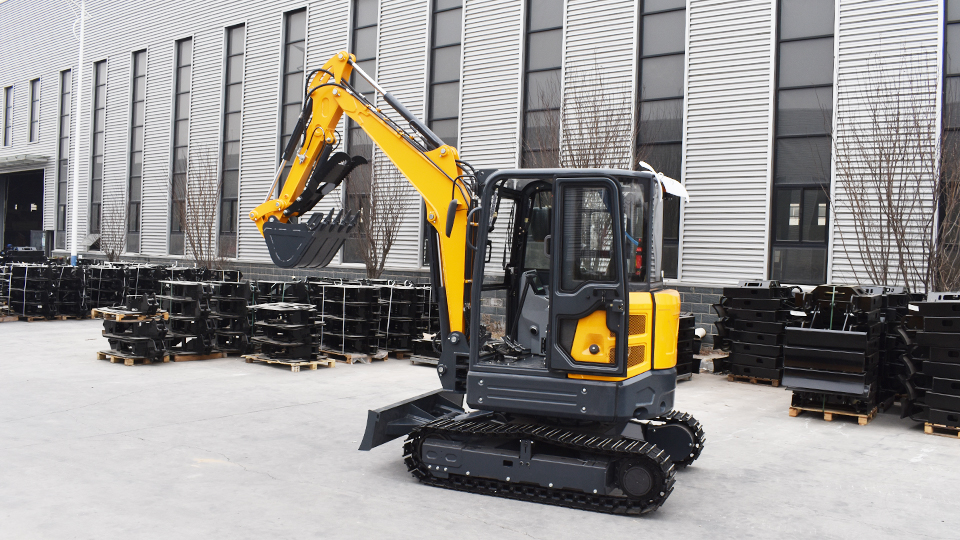Hyundai excavators are renowned for their durability, advanced engineering, and versatility in construction, mining, and demolition projects. However, determining their price involves navigating a complex matrix of factors, including model size, engine specifications, regional demand, and market conditions. This article breaks down the costs associated with Hyundai excavators, offering insights for buyers, contractors, and fleet managers.
1. Factors Influencing Hyundai Excavator Prices
The price of a Hyundai excavator varies significantly based on several key elements:
A. Model and Size
Hyundai offers excavators ranging from compact models (1–2 tons) to heavy-duty machines (30+ tons). Smaller units like the Hyundai R110W (11-ton class) typically cost between 30,000to50,000, while larger models such as the Hyundai R880LC-7 (88-ton class) can exceed $500,000.
B. Engine Configuration
Diesel Engines: Most Hyundai excavators use turbocharged diesel engines (e.g., Hyundai HMC D6BB or D11S) compliant with Tier 4 Final/Stage V emissions standards. Higher horsepower engines increase costs.
Electric/Hybrid Models: Emerging electric and hybrid variants (e.g., Hyundai’s zero-emission prototypes) are pricier upfront but offer long-term fuel savings.
C. Hydraulic System
Advanced hydraulic systems, such as Hyundai’s SMART Hydraulics, improve efficiency but may raise the price by 10–15% compared to standard systems.

D. Cab and Technology
Standard Cab: Basic seating and controls (~10,000–20,000).
Premium Cab: Air-conditioned cabs with joystick controls, LCD screens, and noise reduction (~20,000–40,000 extra).
Automation: GPS-guided or autonomous models add 50,000–200,000 depending on sophistication.
2. New vs. Used Hyundai Excavators
A. New Models
Compact Excavators (1–6 tons): 25,000–100,000.
Mid-Size (8–14 tons): 100,000–250,000.
Large-Scale (20+ tons): 250,000–700,000+.
B. Used Market
Used Hyundai excavators can cost 30–50% less than new ones but require thorough inspections. For example:
A 3-year-old Hyundai R210W-7 (21-ton) might sell for 80,000–120,000 (vs. $150,000 new).
3. Regional Price Variations
North America: High import taxes in Canada and the U.S. can inflate prices by 10–20%.
Europe: Compliance with Euro Stage V standards adds ~5,000–10,000 to base prices.
Asia/Africa: Competitive markets reduce archaeological excavation news prices by 15–25%, but shipping costs apply for remote areas.
4. Additional Costs Beyond Purchase
Maintenance: Annual service contracts range from 5,000–15,000, depending on usage.
Fuel: Diesel consumption averages 10–25 liters/hour, translating to 50–150/day at current fuel prices.
Attachments: Hydraulic breakers, augers, or grapples cost 5,000–50,000 each.
Insurance: Comprehensive coverage for large excavators can exceed $10,000/year.
5. Hyundai Excavator Price List (2023 Estimates)
Model Operating Weight Approx. Price (USD)
Hyundai R060W-9 5.5–6 tons 28,000–40,000
Hyundai R140W-7 13–14 tons 80,000–120,000
Hyundai R210W-7 20–21 tons 150,000–200,000
Hyundai R380LC-7 33–38 tons 250,000–350,000
Hyundai R880LC-7 80–88 tons 500,000–700,000
Note: Prices vary by region, dealership, and configuration.
6. Total Cost of Ownership (TCO)
When budgeting for a Hyundai excavator, consider TCO over 5–10 years:
Depreciation: Heavy machines lose 30–40% value in the first 3 years.
Operator Costs: Salaries and training (~$50,000/year).
Downtime: Repairs or part replacements can cost 1,000–10,000/month if unplanned.
7. Where to Buy Hyundai Excavators
Authorized Dealerships: Ensure warranty compliance and genuine parts (e.g., Hyundai Construction Equipment Americas).
Online Marketplaces: Platforms like IronPlanet or eBay list new/used models globally.
Auctions: Government surplus or liquidation auctions offer steep discounts (~20–40% off).
8. Future Price Trends
Electric Models: Hyundai’s push for electrification may lower operating costs but increase upfront prices by 20–30% initially.
Inflation: Rising material and logistics costs could drive prices up by 5–10% annually.

Global Demand: Infrastructure booms in Asia and the Middle East may strain supply chains, impacting pricing.
9. Tips for Cost-Effective Purchasing
Lease Instead of Buy: Leasing reduces upfront costs and offers tax benefits.
Bulk Purchases: Companies buying multiple units often negotiate volume discounts.
Pre-Owned Inspection: Hire technicians to assess wear, hydraulic health, and engine condition.
Conclusion
The price of a Hyundai excavator depends on its size, technology, and market dynamics. While compact models offer affordability for small projects, heavy-duty variants justify their costs through productivity gains. By analyzing total ownership expenses and exploring regional deals, buyers can optimize their investment. As Hyundai continues innovating with electric and autonomous solutions, the future promises greener and smarter pricing paradigms.
Post time:Sep-25-2020
